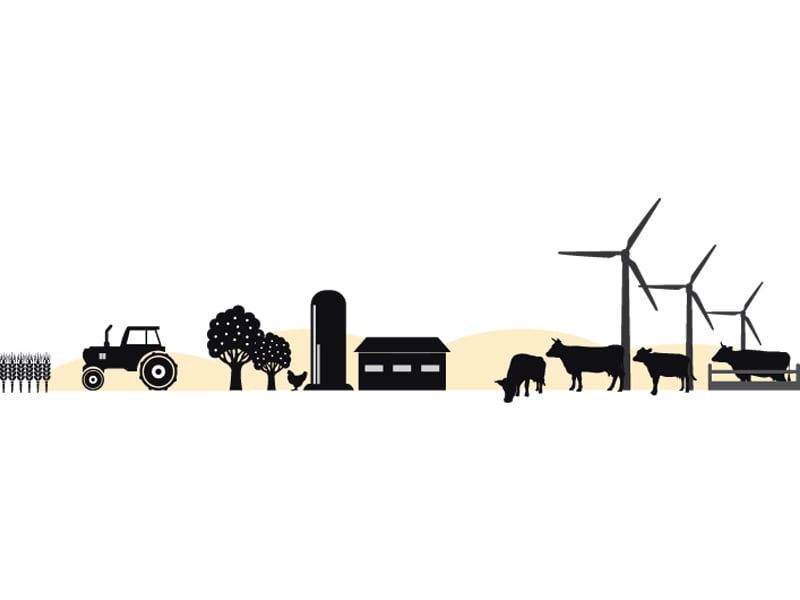
About a third of Pakistan population is rural. And the country’s largest contributor to GDP is still agriculture. The country is also blessed with all kinds of natural resources like arable land, flowing rivers and all four seasons.
But even with all of these conditions which make it seem that Pakistan would not only be self-sufficient in food production but also be a major exporter, the opposite is often true.
Pakistan regularly faces a shortage of various agricultural food products like sugar, wheat and vegetables, and has to resort to imports.
The most recent example is that of wheat were once again Pakistan is faced with a shortage and will be importing a million tons this year, maybe more. While the shortage of food products is alarming, it is even more of a threat when the shortage is in basic food commodities like wheat, rice, sugar, or even milk. This will also cause a spike in inflation as imports and a shortage will push prices up.

Lagging yields
The Pakistani agriculture sector employs about 45% of the labour force and contributes just about 20% to GDP which is a huge discrepancy between the level of input and output. The main reason for this is the absence of farmer education and the use of planning and technology in this vital industry.
While yields in Pakistan have steadily gone up over the past few years they have not kept pace with regional and global averages. Statistics from the FAO show that Pakistan is far behind in the yield of all major crops including wheat, rice, pulses, and sugarcane.
For example Pakistan’s rice yield is about 2.4 tons per hectare. But with the use of technology and a system called Rice Check by which best management practices are combined to produce “the desired crop” in the field, average yields of irrigated rice in Uruguay and southern Brazil have increased from some 5.5 tons per hectare in 2002 to 7–8 tons per hectare in recent years.

According to the Food and Agriculture Organization (FAO) China has a yield of 6.5 ton per hectare, Bangladesh has 4.2 tons and Sri Lanka has 4.1 tons.
According to the report Pakistan is among the top ten producers of wheat but its per hectare yield of 2.6 tons is very low compared to China at 4.7 tons, India at 2.8 tons and the UK at 7.7 tons. However in the UK, the wheat cycle is spread over one year instead of five months in Pakistan.
According to the Pakistan Agricultural Research Council (Parc) wheat gives better yield if sown on time. The council’s research shows that yield drops by 15 to 20 kilogrammes per hectare for every single day delay in sowing.
In coarse grains China produces 5.2 ton per hectare, Pakistan 2.2 ton per hectare and India only 1.2 ton per hectare. Italy with per hectare yield of 7.6 ton per hectare is the productivity leader in coarse grains.
In another major cash as well as food crop, sugarcane, Brazil averages over 79 tons per acre but even that is nothing compared to Columbia which averages 118 tons per hectare. Pakistan on the other hand is far behind at about 52 ton per hectare. Sugarcane, like rice is a highly water-intensive crop.
Use of technology
Lack of mechanisation in farming, research in developing better seeds, timely and informed application of fertiliser and technological advancements in irrigation sciences as well as ready availability of cheap agri-credit is essential if Pakistan is to ensure food security for its people in the coming years.
Other areas where Pakistan needs improvement is crop management so that we can better plan for the year ahead.
Parc recommends that farmers in Pakistan also need to improve their adherence to recommended practices in sowing time, sowing method, seed rate and use of fertilizer to improve yields.
Published in The Express Tribune, August 19th, 2013.
Like Business on Facebook, follow @TribuneBiz on Twitter to stay informed and join in the conversation.
1725784957-0/Tribune-Pic-(17)1725784957-0-405x300.webp)
1724760612-0/Untitled-design-(12)1724760612-0-165x106.webp)















COMMENTS
Comments are moderated and generally will be posted if they are on-topic and not abusive.
For more information, please see our Comments FAQ